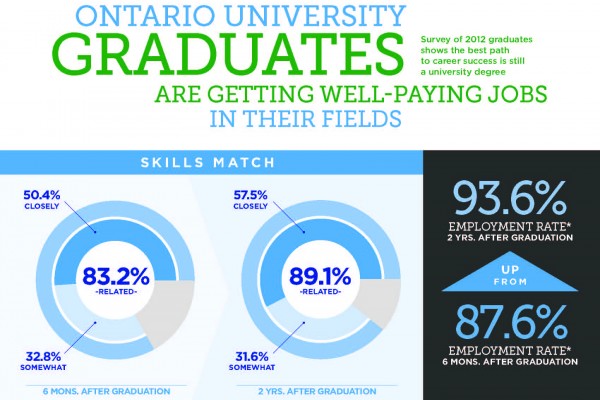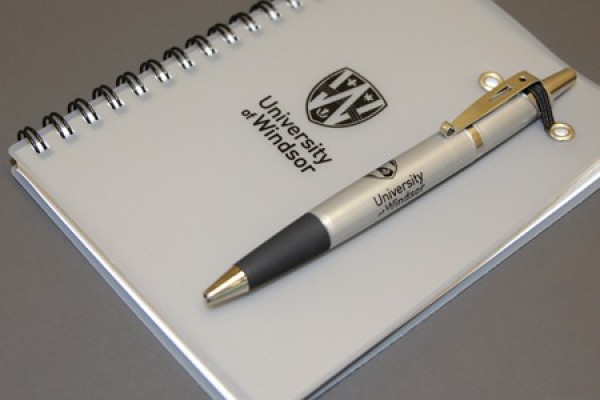 The average salary for graduates working full-time two years after graduation was $49,001 and just six months after graduation it was $42,301.
The average salary for graduates working full-time two years after graduation was $49,001 and just six months after graduation it was $42,301.
The vast majority of Ontario university undergraduates secure jobs just two years after graduation. Those working full-time say their jobs are in their field, use the skills learned at university, and pay an average of more than $49,000, according to the latest Grad Survey.
The survey of graduates of Ontario undergraduate programs conducted for Ontario’s Ministry of Training, Colleges and Universities shows that almost 94 per cent of graduates had jobs two years after graduation, and almost 88 per cent were in jobs six months after graduation.
The average salary for graduates working full-time two years after graduation was $49,001 and just six months after graduation it was $42,301.
Two years after leaving university, more than 89 per cent of graduates employed full-time considered their work related to the skills developed at university, and almost 78 per cent said their work was related to their program of study.
“A university education is worth the investment; university graduates can count on getting well-paying jobs in their fields soon after leaving university,” says Patrick Deane, Chair of the Council of Ontario Universities (COU) - which released the survey today - and President of McMaster University.
Bonnie M. Patterson, COU President and CEO, says empirical data shows university grads have the highest employment rates and highest earnings of graduates of any other level of education.
“The unmatched employment outcomes for university graduates demonstrate that universities are equipping students with the skills employers value,” Patterson says.
“Skills learned at university can be transferred within the knowledge economy as the job market changes and demands that people take on the jobs of the future.”
In all, 76,625 students who graduated from undergraduate programs at Ontario universities in 2012 were surveyed between November 2014 and March 2015 with 28,448 responding.

